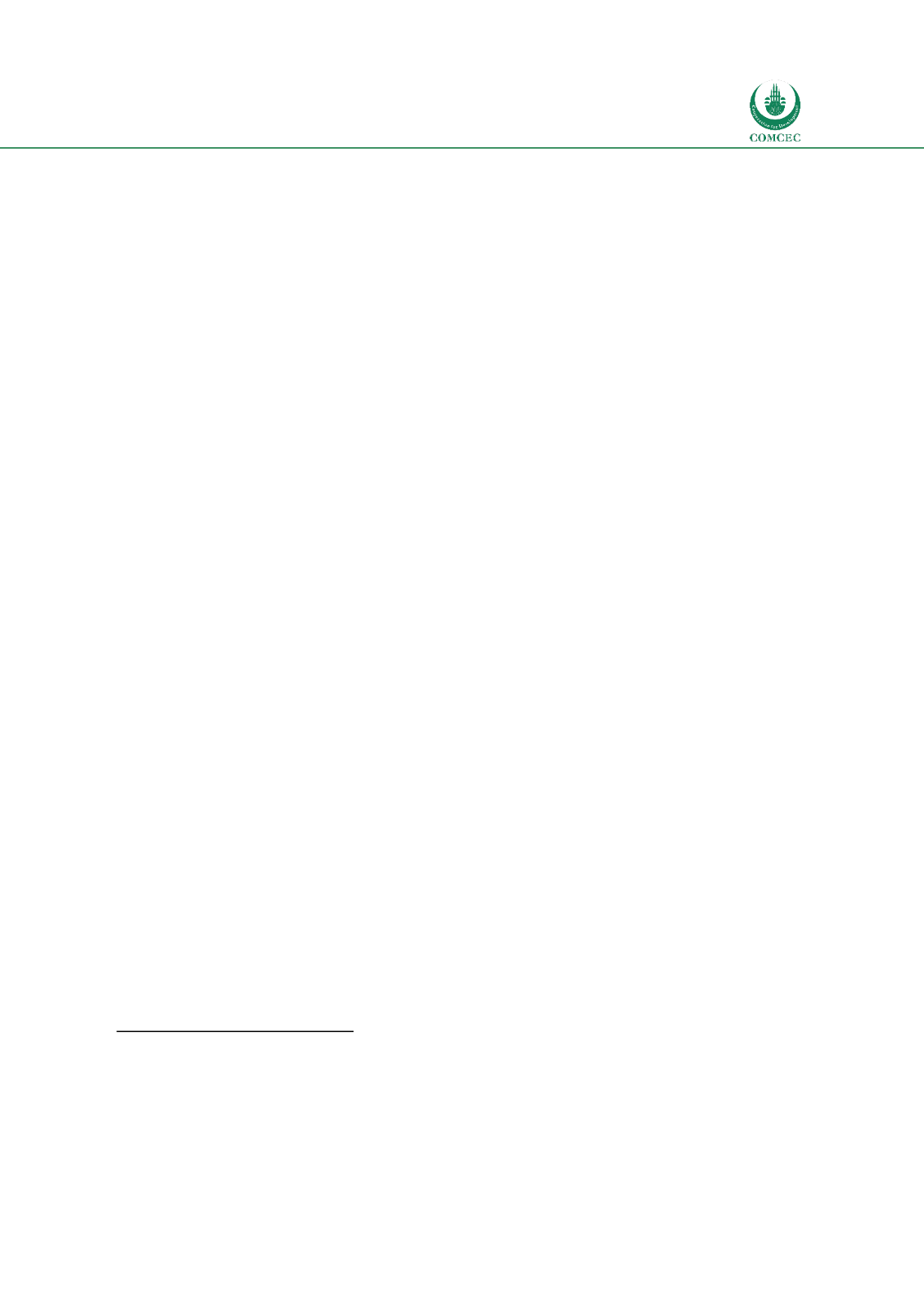

Muslim Friendly Tourism:
Developing and Marketing MFT Products and Services
In the OIC Member Countries
55
2.
MFT Products and Services in OIC Member States
While the development of MFT products and services among OIC countries can be described
as unequal, a number of OIC countries have taken the lead on the MFT global scene including
Malaysia, United Arab Emirates and Turkey among others. Examples of MFT products and
services in the various areas are provided below.
Food and Beverage
There is an abundance of Halal dining options in OIC countries whether in terms of local food
outlets or international chains which are using Halal components for their operations in OIC
countries. Americana Group (Kuwait Food Co.), a key player in the fast food and restaurant
business with 1,630 outlets in the MENA region, operates a number of franchises serving
Halal food including KFC, Pizza Hut, Hardee’s, TGI Friday, Red Lobster, and Olive Garden.
121
Amer Group, a leading Egyptian hospitality provider, operates a number of local restaurants
as well as some international franchises including Chili’s, Johnny Carino’s and Ocean Basket.
Alshaya Co., a Kuwaiti based group, operates in 19 countries and has more than 70 brands in
its portfolio including Starbucks, the Cheesecake Factory, the Shake Shack, and Pink Berry
among others all using strictly Halal food components.
122
Al Shaya has recently expanded
beyond the MENA region to cover other countries in Asia including Indonesia and Malaysia.
123
However, the process of Halal certification for restaurants in many OIC countries is lagging
behind and varying standards are being used in the application of certification. Asad Sajjad,
CEO of the UAE-based Gulf Halal Center and Halal Development Council, stressed the
importance of certification in this area as the MENA concept of “kulu Halal”, meaning all is
Halal in Arabic, is not suitable in an increasingly “globalized economy”.
124
In the UAE, the
Emirates Standardization and Metrology Authority (ESMA) imposed Halal certification an all
restaurants and food products sold in the UAE starting 2014.
125
In Malaysia, the Department
of Islamic Development (JAKIM) specified that any restaurant serving or selling alcoholic
beverages would not be granted a Halal certificate.
126
The process of certification itself has
proven to be quite complex and long for some Malaysian restaurants, which inhibited them
from seeking it.
127
Still, lack of certification can pose a problem to their operation as Tony
Roma’s restaurants found out; even though they serve Halal food prepared by Muslim chefs,
people doubted their Halal status in the absence of certification.
128
Accommodation
Muslim friendly accommodation options are still low across the OIC countries and show great
variance in the level of services offered to Muslims. While some hotels offer a basic level of
MFT services namely providing Halal food options, other hotels offer prayer rooms, separate
recreation facilities for females and males as well have their staff wear modest uniform.
121
“Our Brands.” Americana Group. 2016. Web.
122
Kowitt, Beth, “M.H Alshaya: The mystery company importing Americana to the Mideast.” Fortune. 12 Feb. 2013. Web.
123
Yoong, Sean. "4 International Restaurant Brands to Anticipate in KL." EatDrink. 17 Sept. 2015. Web.
124
Cochrane, Paul. “The Halal Food Challenge in the Middle East.” Just-Food. 9 Apr. 2015. Web.
125
“All Halal Food Sold in the UAE Must Be Halal Certified from 2014.” The Halal Media. Web.
126
Irsyad, Arief. "No Halal Certificate But Still 'Halal'" Malaysian Digest. 24 Dec. 2014. Web.
127
Azlee, Aizyl. "Halal Certification: What Malaysian Eateries Really Think." Malay Mail Online. 23 Feb. 2016. Web.
128
Irsyad, Arief. "No Halal Certificate But Still 'Halal'" Malaysian Digest. 24 Dec. 2014. Web.
















